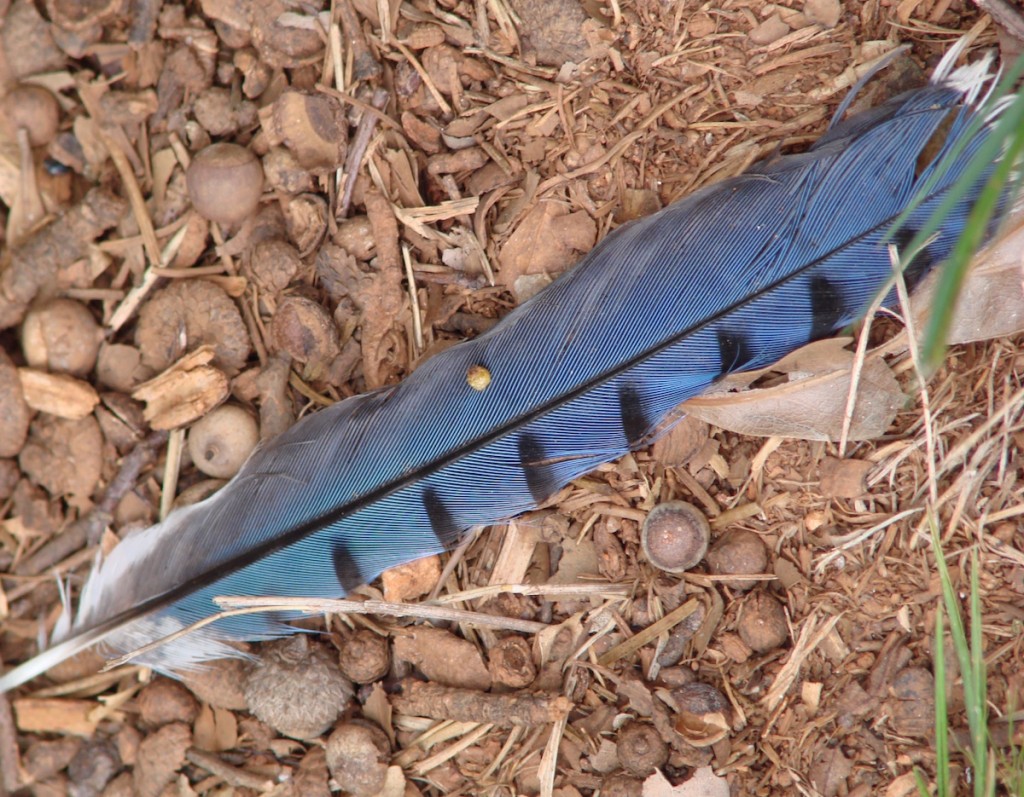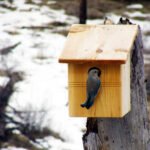
You may have heard the urban legend. One day a guy is hiking along a trail and he spots a gorgeous-looking feather on the ground. He picks it up and carries it around in his hand, looking at it with wonder and curiosity. That’s when he’s arrested and fined $100,000 for possessing a feather illegally.
Sounds preposterous right?
Wrong. While the details of the urban legend may be exaggerated, it is in fact illegal to collect certain bird feathers thanks to the Migratory Bird Treaty Act of 1918.
The nearly 100-year-old act was put into place to protect birds that migrated between the United States and Canada because of a decline in bird populations. Hunting was fairly rampant because the fashion during that time featured hats adorned with bird feathers.
The treaty makes it unlawful to hunt, take, capture, kill, or sell migratory birds. The statute extends to any bird part, including feathers, eggs, and nests.
It seems harmless to pick up a nest or feathers you find on the ground, but it’s against the law because it’s difficult for enforcement officers to figure out whether it was obtained through ignominious or accidental means. So they put the burden on the carrier of the feather and took away the question.
More than 800 species are currently on the list, including the Bald Eagle, Black-capped Chickadee, Northern Cardinal, American Crow, Canada Goose, Mourning Dove, Barn Swallow, Cedar Waxwing, Barn Owl, and more. That means the feathers of all of these birds are forbidden.
An exemption to the act does exist, however. The Eagle Feather Law allows the collection of Golden Eagle and Bald Eagle feathers for religious purposes by Native Americans. In order to quality, individuals must have certifiable ancestry and be enrolled in a tribe.
 Despite sounding a tad ridiculous these days, the roots of the law are sound and still serve a purpose.
Despite sounding a tad ridiculous these days, the roots of the law are sound and still serve a purpose.
You might also be asking yourself what about the bird feathers you see at stores.
Since certain species aren’t protected under the Migratory Bird Treaty Act, picking up and possessing their feathers is perfectly legal. That means nonnative species like House Sparrows and European Starlings aren’t covered, along with nonmigratory birds like turkeys, chickens, Mute Swans, quails, and the like.
So the next time you see a bird feather on the ground, you’d better be sure it’s from an invasive species or nonmigratory bird or leave it alone.



189 Comments
Some wrong information here. The migratory bird convention does not include eagles and other raptors. These are the species covered:
The High Contracting Powers declare that the migratory birds included in the terms of this Convention shall be as follows: —
1 Migratory Game Birds: —
(a) Anatidae or waterfowl, including brant, wild ducks, geese, and swans;
(b) Gruidae or cranes, including little brown, sandhill, and whooping cranes;
(c) Rallidae or rails, including coots, gallinules and sora and other rails;
(d) Limicolae or shorebirds, including avocets, curlew, dowitchers, godwits, knots, oyster catchers, phalaropes, plovers, sandpipers, snipe, stilts, surf birds, turnstones, willet, woodcock, and yellowlegs;
(e) Columbidae or pigeons, including doves and wild pigeons.
2 Migratory Insectivorous Birds: Bobolinks, catbirds, chickadees, cuckoos, flickers, flycatchers, grosbeaks, humming birds, kinglets, martins, meadowlarks, nighthawks or bull bats, nuthatches, orioles, robins, shrikes, swallows, swifts, tanagers, titmice, thrushes, vireos, warblers, waxwings, whippoorwills, woodpeckers, and wrens, and all other perching birds which feed entirely or chiefly on insects.
3 Other Migratory Nongame Birds: Auks, auklets, bitterns, fulmars, gannets, grebes, guillemots, gulls, herons, jaegers, loons, murres, petrels, puffins, shearwaters, and terns.
For someone that studies ‘constitutional law’ you write at a grade school level and your understanding of the law is about the same.
Poaching is bad. Punishing people for picking up dropped feathers is dumb.
I assume you would need dozens of feathers for any commercial purpose. I highly doubt they’re going to find a poacher holding a single bird feather. You could just amend the law to punish having more than a few feathers of a single breed or using them for commercial purposes. That way, you could still pick up a neat one or have a small collection, but it’d prevent poachers.
Any ranger/federal agent who actually prosecutes someone for a single feather is evil by using an over general law for selfish purposes (probably too feel self important or to pad their department’s funds with fines).
Of course, changing the law will never happen because there are no incentives in slightly rolling back overly restrictive laws…